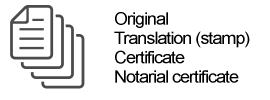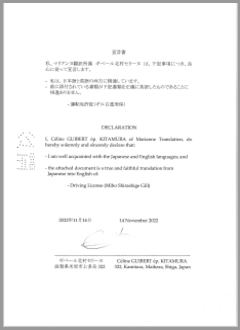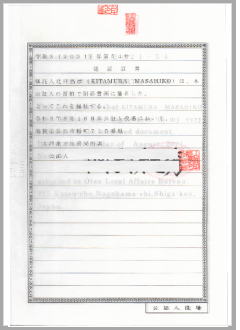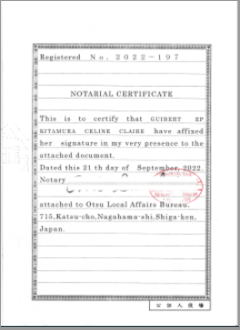Two cases where notarization is necessaryCase 1: When you need a notarized translationNotarization is necessary when you need to submit a translation for various procedures (visa application, marriage application, job application, etc.) and when its relevant agency/organization asks you to submit not a simple certified translation but a notarized translation, a translation with an affidavit, a translation with a sworn statement, etc. Case 2: When you need a legalized (apostilled / authenticated) translationNotarization is necessary when you need to submit a legalized (apostilled / authenticated) translation for various procedures because the translations, which are private documents, need to be officialized by notarization as an apostille and an authentication are both the certification of official documents by the Ministry of Foreign Affairs.
Notarization processThe notarization of the translation corresponds to the notarization of the signature of the translator. In the notary office, 1. The notary verifies the identity of the translator with the passport, driving permit, etc. 2. In front of the notary, the translator affixes his/her signature on the translator's certificate (declaration of language proficiency, accuracy of the translation, etc.) 3. The notary issues a set of documents composed of:
Translator's certificate (declaration) in two languages
Notarial certificate (in Japanese and English)
Notarization feesThe notary fee is 12500 yen per translator's certificate written in two languages. The handling fee is 6500 yen.
Necessary time
Request for quotation
|
 |













 - a document needed to be translated (original
or certified copy)
- a document needed to be translated (original
or certified copy)

